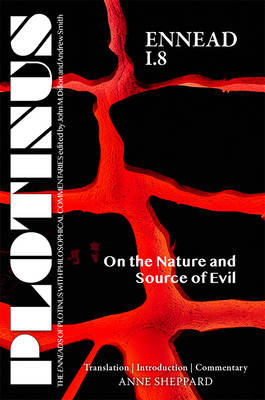
Bedankt voor het vertrouwen het afgelopen jaar! Om jou te bedanken bieden we GRATIS verzending (in België) aan op alles gedurende de hele maand januari.
- Afhalen na 1 uur in een winkel met voorraad
- In januari gratis thuislevering in België
- Ruim aanbod met 7 miljoen producten
Bedankt voor het vertrouwen het afgelopen jaar! Om jou te bedanken bieden we GRATIS verzending (in België) aan op alles gedurende de hele maand januari.
- Afhalen na 1 uur in een winkel met voorraad
- In januari gratis thuislevering in België
- Ruim aanbod met 7 miljoen producten
Zoeken
Plotinus Ennead I.8: On the Nature and Source of Evil
Translation with an Introduction and Commentary
Anne Sheppard
€ 58,45
+ 116 punten
Omschrijving
Ennead I.8 was written not long before Plotinus' death in 270 AD, at a time when he was particularly concerned with ethical issues. The treatise' primary purpose is to argue that evil is not intrinsic to the soul, but since Plotinus always considers ethical issues within a metaphysical framework, it includes an account of the ontological status of matter. Plotinus does his best to preserve a belief in the dependence of all things on a single, supremely good First Principle while admitting that there is evil in the world. He offers a subtle account of the origin of evil in the soul as caused not by either the soul or matter on its own but by the combination of the two. Sheppard shows how Plotinus is responding to ideas found in Plato, Aristotle, the Stoics, and Middle Platonism as well as to the challenge presented by Gnosticism, and argues that the views expressed in I.8 are not inconsistent with what Plotinus has to say about matter and its generation elsewhere. She further considers the criticisms of Plotinus' views put forward by Proclus and concludes that, despite its weaknesses, Plotinus' account remains an ingenious attempt to defend monism and the essential goodness of the soul while recognizing the existence of evils.
Specificaties
Betrokkenen
- Auteur(s):
- Uitgeverij:
Inhoud
- Aantal bladzijden:
- 198
- Taal:
- Engels
- Reeks:
Eigenschappen
- Productcode (EAN):
- 9798988320128
- Verschijningsdatum:
- 14/08/2025
- Uitvoering:
- Paperback
- Formaat:
- Trade paperback (VS)
- Afmetingen:
- 127 mm x 190 mm
- Gewicht:
- 199 g

Alleen bij Standaard Boekhandel
+ 116 punten op je klantenkaart van Standaard Boekhandel
Beoordelingen
We publiceren alleen reviews die voldoen aan de voorwaarden voor reviews. Bekijk onze voorwaarden voor reviews.









